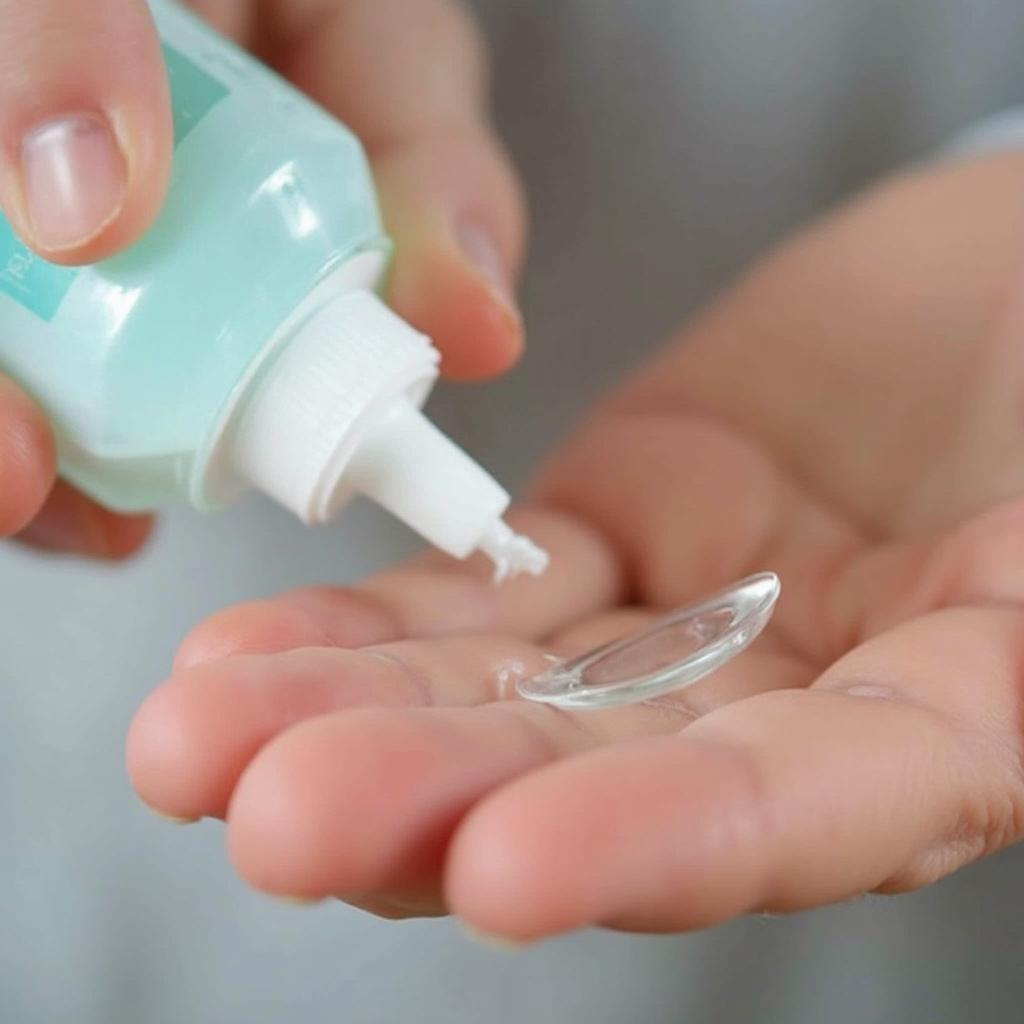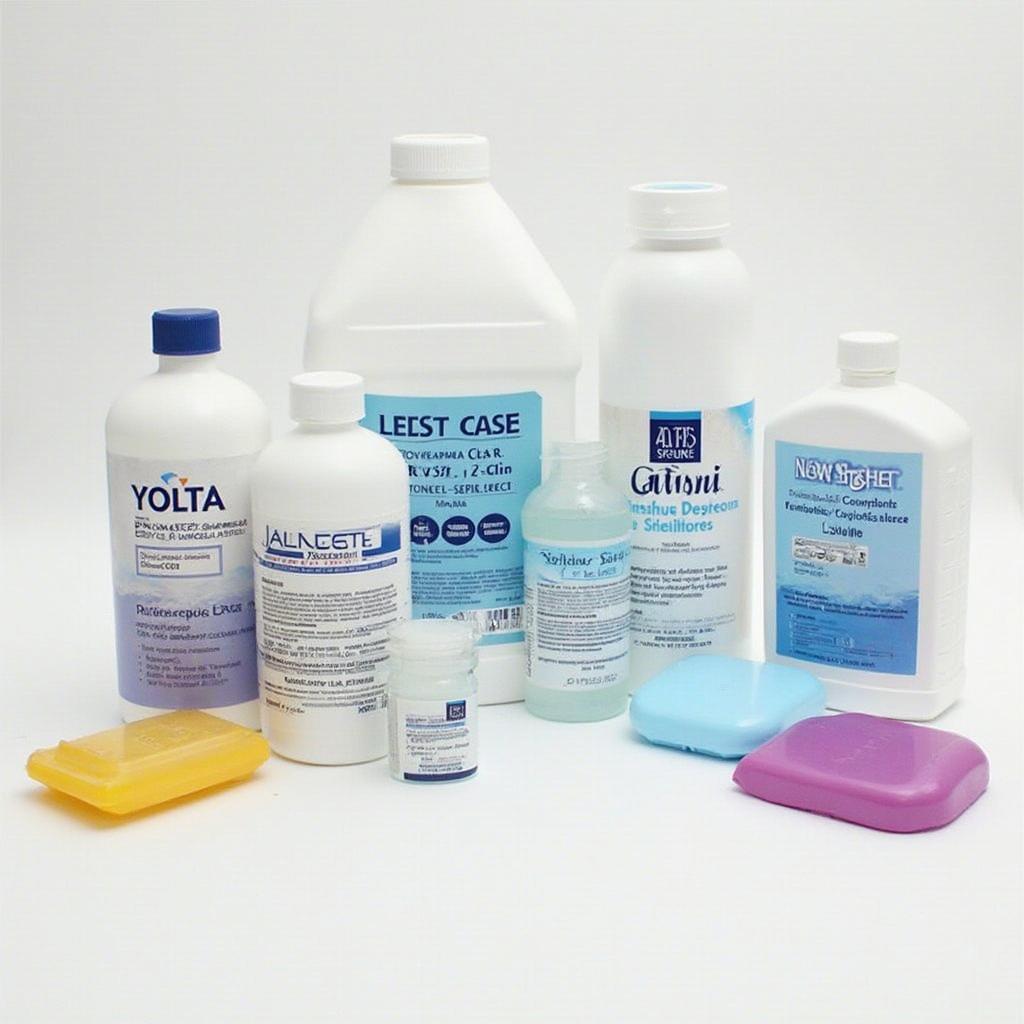Your cart is currently empty!

Essential Tips to Take Care of Contact Lenses
Contact lenses offer a convenient and liberating alternative to glasses, providing clear vision and a wider field of view. However, proper care is crucial to maintain healthy eyes and prevent infections. This guide covers essential Tips To Take Care Of Contact Lenses effectively, ensuring your eyes stay comfortable and infection-free.
Mastering the Basics of Contact Lens Care
Handling contact lenses requires diligence and meticulous hygiene. Follow these essential tips to take care of contact lenses: Always wash your hands thoroughly with soap and water before handling your lenses. Dry your hands with a lint-free towel to prevent fibers from sticking to the lenses. Never use tap water to rinse your lenses or your lens case. Tap water can contain harmful microorganisms that can lead to serious eye infections. Instead, use sterile saline solution specifically designed for contact lenses.
After removing your lenses, clean them immediately with a multipurpose solution or a hydrogen peroxide-based system, following the manufacturer’s instructions. Rubbing your lenses gently, even if using a “no-rub” solution, helps remove debris and protein deposits. Replace your lens case regularly, ideally every three months, as it can become a breeding ground for bacteria. Never reuse old solution. Always discard the used solution and refill the case with fresh solution each time you store your lenses.
After cleaning your lenses thoroughly, place them in a clean lens case filled with fresh disinfecting solution. Ensure your lenses are fully submerged in the solution to prevent them from drying out and warping.
 Cleaning contact lenses with solution and rubbing gently
Cleaning contact lenses with solution and rubbing gently
Choosing the Right Lens Care Products
Using appropriate lens care products is essential for maintaining the health and integrity of your contact lenses. Consult your eye doctor for recommendations tailored to your specific needs. Different types of contact lenses require different care regimens. For example, soft lenses typically require a multipurpose solution, while rigid gas permeable (RGP) lenses need specific cleaning and conditioning solutions. Avoid using expired solutions or products that have been contaminated. Always check the expiration date and discard any solution that appears cloudy or discolored.
 Different types of contact lens solutions and cases.
Different types of contact lens solutions and cases.
Avoiding Common Mistakes in Contact Lens Care
Several common mistakes can compromise the effectiveness of your lens care routine and put your eye health at risk. Never sleep in your contact lenses unless specifically prescribed by your eye doctor. Sleeping in lenses increases the risk of eye infections and other complications. Avoid exposing your lenses to excessive heat or sunlight, as this can damage the lenses and make them uncomfortable to wear. Do not top off the solution in your lens case. Always empty the old solution and replace it with fresh solution to prevent bacterial growth.
tips for taking care of soft lens
How Often Should You Replace Your Contact Lenses?
Adhering to the recommended replacement schedule for your contact lenses is crucial for maintaining optimal eye health. Daily disposable lenses are designed to be worn for a single day and then discarded. Extended wear lenses can be worn for a longer period, typically up to 30 days, depending on the type and your eye doctor’s recommendations. Regularly replacing your lenses helps prevent the buildup of protein deposits and other debris that can irritate your eyes and increase the risk of infections.
 Calendar highlighting contact lens replacement schedule.
Calendar highlighting contact lens replacement schedule.
When to See Your Eye Doctor
Regular eye exams are essential for ensuring the continued health of your eyes and the proper fit of your contact lenses. Schedule regular checkups with your eye doctor, even if you are not experiencing any problems. If you experience any redness, pain, blurred vision, or excessive tearing, remove your contact lenses immediately and consult your eye doctor. These symptoms could indicate an eye infection or other serious condition.
“Consistent and proper lens care is paramount for maintaining eye health. Neglecting these simple steps can lead to significant complications,” advises Dr. Amelia Carter, a leading ophthalmologist. “Following the recommended guidelines and consulting your eye doctor regularly ensures optimal eye health and clear vision.”
In conclusion, taking care of your contact lenses is a vital part of maintaining healthy eyes and clear vision. By following these tips to take care of contact lenses, you can minimize the risk of infections and enjoy the comfort and convenience of contact lenses.
FAQ
- Can I use tap water to rinse my contact lenses?
- How often should I replace my lens case?
- What should I do if I experience redness or irritation while wearing my contacts?
- Can I wear my contact lenses while swimming?
- How do I store my contact lenses when traveling?
- Can I wear makeup with contact lenses?
- What are the different types of contact lens solutions?
Contact Lens Care Troubleshooting
Scenario 1: Blurry Vision
- Possible Cause: Protein deposits on lenses.
- Solution: Thoroughly clean and disinfect lenses. If the problem persists, consult your eye doctor.
Scenario 2: Dry Eyes
- Possible Cause: Not blinking frequently enough, environmental factors, or improper lens fit.
- Solution: Use lubricating eye drops designed for contact lens wearers. Consult your eye doctor to rule out any underlying conditions.
Further Reading and Resources
For more information on post-LASIK care and eye health, visit Post Lasik Care Tips. If you are interested in photography and want to improve your skills, check out our articles on Tips for Photographing Your Car and Career Photography Tips. Also, for helpful advice on eye care during the winter months, see our guide on Winter Eye Care Tips.
Need further assistance? Our team is available 24/7 to answer your questions and provide support. Contact us via WhatsApp: +1(641)206-8880, Email: [email protected] or visit us at 456 Pine Avenue, Toronto, ON M5V 2J4, Canada.

Leave a Reply